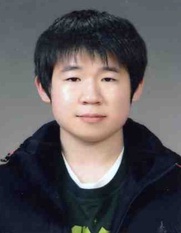
An article titled “Importance of Science Merged with Politics” in The Postech Times made me think many things. When I was in high school, I wrote an essay about a similar topic. So I was interested in this article.
Do you know “fundamental scienc?or “basic science”? It is the basis of engineering and applied science. Countries near Korea, such as China, Russia and Japan, have invested in fundamental science. China trained scientists and researched fundamental science in 1950?. Since 1900, Japan also has given considerable thought to basic science, and in 1949, a Japanese was awarded a Nobel Prize. Vladimir Putin said that Russia planned to invest 834 billion roubles (24.3 trillion won) in researching fundamental science.
On the contrary, Korea thought that fundamental science was not important. Korea’s technology of Samsung and LG Display is No.1 in the world. However Korea depends on other countries for basic technology. It means that Korea is a chasing country that imitates and develops other countries’ technology. I think we should research basic science and be a creator in science and technology, not an imitator.
There is not only a lack of investment in fundamental science, but also an inhospitable atmosphere for science and engineering researchers. Thus in Korea, “brain drain” is a serious problem. The meaning of brain drain is that there is a movement of a large number of scientists or academics away from their own country to other countries where the conditions and salaries are better. Thirty-seven percent of 1478 domestic scientists wanted to work in other countries and half of them said that the domestic researching environment is poor. Actually, the payment of scientists who research in Korea is only 74% of that in USA.
Besides, Korean education is divided into liberal arts and general science courses. There are only two countries that employ this system: Korea and Japan. This teaching method is one of the vestiges of Japanese imperialism. The distinction makes Korea develop its economy quickly and be a “fast chaser? On the other hand, we cannot be “first pioneer” who discovers new things. The Ministry of Education announced the abolition of the distinction. Some people argued that the distinction makes high quality education. However, there are so many academic fields that cannot be placed into one of the two fields. Modern society does not want only specific fields and needs communication between liberal arts and general science. Repealing the division may lay a burden on students, but the tendency of the world is training bright minds who can make connections across various fields.


